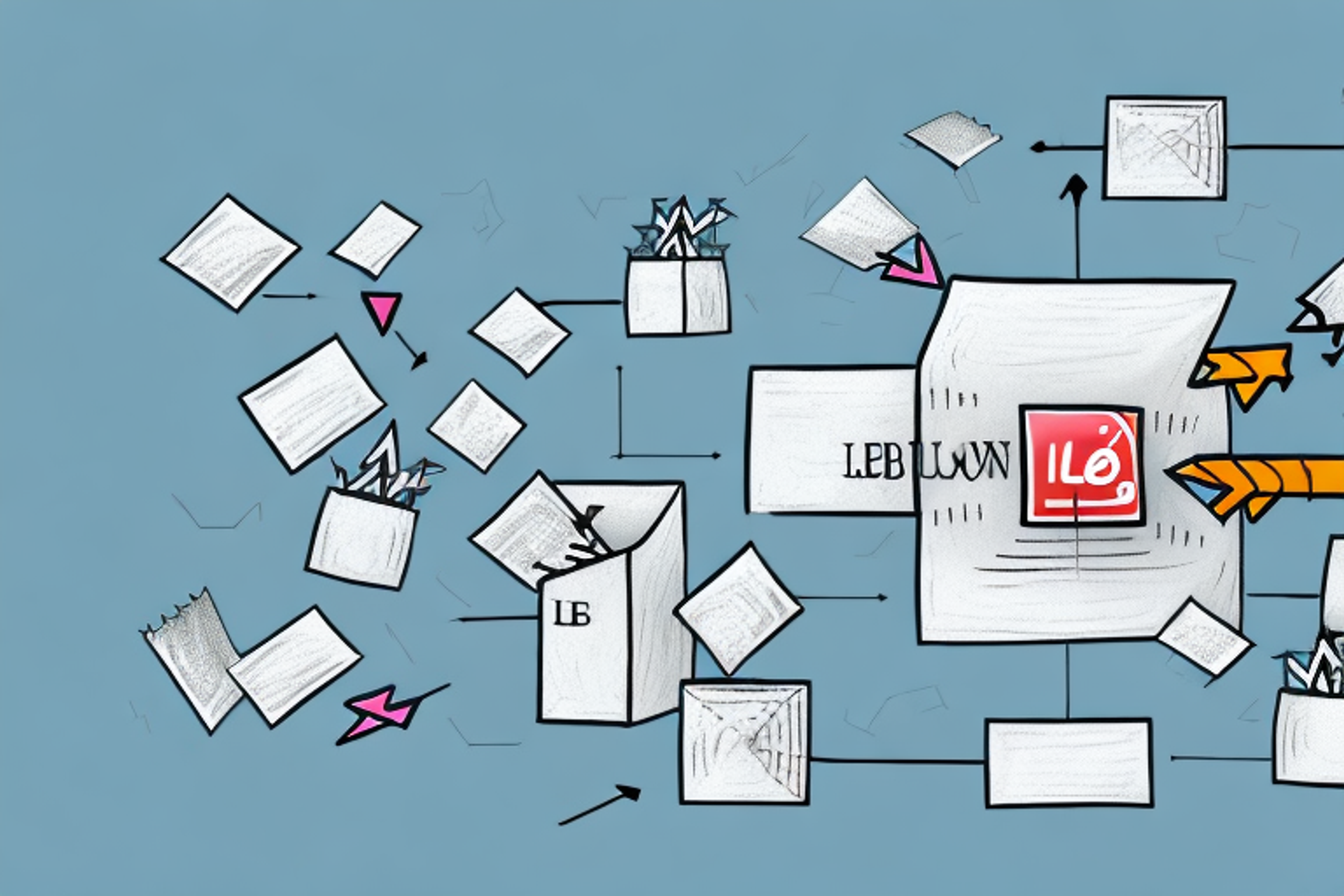A Comprehensive Guide the Paper LBO PE Interview Question
Looking to ace the paper LBO private equity interview question? Look no further than our comprehensive guide.
Posted March 6, 2025

Table of Contents
Private equity (PE) interviews are notoriously difficult, especially the paper LBO (leveraged buyout) model question. The paper LBO model is a test of a candidate's ability to analyze financial information, construct a deal structure that maximizes returns, and communicate that analysis effectively. In this comprehensive guide, we will explore the key elements of the paper LBO model and provide tips and tricks for mastering this critical component of the PE interview process.
Understanding the Paper LBO PE Interview Question
Before we dive into the specifics of the paper LBO model, let's make sure we understand the basics. In a paper LBO, the candidate is given a hypothetical company and must analyze its financials to determine if the company is a good investment. The candidate must then construct a deal structure in which a portion of the purchase price is funded with debt (hence the term "leveraged buyout"), and the candidate must show how that debt can be serviced by the company's future cash flows.
It's important to note that the paper LBO model is commonly used in private equity interviews to test a candidate's financial modeling skills and ability to think critically about a potential investment. The candidate must not only analyze the financials of the hypothetical company, but also consider market trends, competition, and potential risks to the investment. Additionally, the candidate must be able to effectively communicate their analysis and deal structure to the interviewer, demonstrating strong presentation skills and the ability to think on their feet.
How to Answer the Paper LBO PE Interview Question
To successfully answer the paper LBO question, the candidate must demonstrate proficiency in financial analysis, deal structuring, and communication. The following steps can help candidates prepare:
- Understand the company's financials and industry dynamics.
- Develop a comprehensive financial model that accurately forecasts future cash flows.
- Determine an appropriate purchase price based on the company's financials and industry benchmarks.
- Create a deal structure that optimizes the use of debt and equity.
- Demonstrate a clear understanding of the risks and rewards associated with the transaction.
Mastering the Paper LBO Model for PE Interviews
Mastering the paper LBO model requires both knowledge of financial concepts and practice creating models. Candidates can improve their skills through coursework, reading books, practicing with online or in-person tools, and leveraging feedback from mentors or peers. It is recommended that candidates memorize the financial formulas used in the paper LBO model, so that they can execute calculations efficiently and accurately.
Another important aspect of mastering the paper LBO model is understanding the assumptions and limitations of the model. Candidates should be able to identify the key drivers of the model and how changes in these drivers can impact the outcome of the model. Additionally, candidates should be able to identify potential errors or biases in the model and how to adjust for them.
Finally, candidates should be able to effectively communicate their analysis and findings from the paper LBO model. This includes creating clear and concise presentations or reports that highlight the key takeaways from the model. Candidates should also be prepared to answer questions and defend their assumptions and analysis during the interview process.
Key Elements of a Successful Paper LBO Model for PE Interviews
A successful paper LBO model needs to include the following key elements:
- An accurate valuation and purchase price range.
- A comprehensive financial model.
- A debt structure that maximizes returns while minimizing risk.
- An understanding of the overall market and industry trends.
- A clear presentation that communicates the candidate's analysis and conclusions.
Another important element of a successful paper LBO model is a thorough analysis of the target company's management team. This includes an evaluation of their experience, track record, and ability to execute the proposed business plan. Additionally, a detailed assessment of the company's operations and potential for growth is crucial in determining the feasibility of the LBO.
Furthermore, a successful paper LBO model should also consider the potential risks and challenges that may arise during the investment period. This includes analyzing the competitive landscape, regulatory environment, and potential macroeconomic factors that may impact the target company's performance. By identifying and addressing these risks upfront, the candidate can demonstrate their ability to proactively manage and mitigate potential issues.
Step-by-Step Guide to Creating a Paper LBO Model for PE Interviews
To create a paper LBO model, candidates should follow these steps:
- Understand the company's financials and industry dynamics.
- Create a comprehensive financial model that includes revenue, expenses, and cash flows.
- Calculate a range of potential valuations based on the company's financial history, growth prospects, and industry benchmarks.
- Determine an appropriate purchase price based on the company's financials and industry benchmarks.
- Create a debt structure that maximizes returns while minimizing risk.
- Calculate the IRR (internal rate of return) and other key financial metrics.
- Use sensitivity analyses to test the robustness of the model under different scenarios.
- Prepare a clear and concise presentation that communicates the analysis and conclusions to the interviewers.
It is important to note that creating a paper LBO model is just one aspect of the private equity interview process. Candidates should also be prepared to discuss their investment thesis, deal sourcing strategies, and their ability to add value to portfolio companies. Additionally, candidates should be knowledgeable about current market trends and be able to articulate how they would navigate potential challenges in the industry.
Common Mistakes to Avoid When Answering the Paper LBO PE Interview Question
Some common mistakes candidates make when answering the paper LBO question include:
- Not understanding the company's financials and industry dynamics well enough.
- Over-complicating the financial model.
- Misjudging the appropriate purchase price range.
- Failing to create a debt structure that maximizes returns while minimizing risk.
- Not considering potential risks and drawbacks.
- Not presenting the analysis and conclusions clearly.
Another common mistake that candidates make when answering the paper LBO question is not taking into account the exit strategy. It is important to consider how the investment will be exited and what the potential returns will be. Additionally, not having a clear understanding of the market conditions and competition can also lead to flawed analysis and incorrect conclusions. It is crucial to conduct thorough research and analysis to avoid these mistakes and present a well-rounded and informed answer to the paper LBO question.
Tips and Tricks for Nailing the Paper LBO PE Interview Question
Here are some tips and tricks that can help candidates nail the paper LBO question:
- Begin by getting a firm understanding of the company's financials and industry dynamics.
- Stick to the basics when building the financial model.
- Practice creating models, and memorize key financial formulas.
- Be prepared to explain how you arrived at your conclusions.
- Practice presenting your analysis clearly and concisely.
- Be confident, and don't be afraid to ask questions if you're unsure about something.
Preparing for a PE Interview: Focus on the Paper LBO Model
As the paper LBO model is such an important component of PE interviews, candidates should prioritize it in their preparation. Take time to study industry trends, read relevant books and articles, and practice building models. Seek feedback from mentors or peers, and be persistent in your efforts to improve.
Examples of Successful Paper LBO Models Used in Actual PE Interviews
Here are some examples of successful paper LBO models:
How to Showcase Your Analytical Skills During a Paper LBO PE Interview
Here are a few ways that candidates can showcase their analytical skills:
- Create a comprehensive financial model that accurately predicts future cash flows.
- Demonstrate a deep understanding of the company's financials and industry trends.
- Be able to explain the rationale behind key financial metrics such as IRR, NPV (net present value), and ROIC (return on invested capital).
- Identify and mitigate key risks associated with the investment.
The Importance of Practice When It Comes to the Paper LBO PE Interview Question
Practice is absolutely critical when it comes to mastering the paper LBO model. The more candidates practice building models, the more familiar they will become with the key financial formulas and concepts. Practice communicating the analysis and conclusions effectively, and seek feedback from mentors or peers to refine your skills.
Resources and Tools for Practicing the Paper LBO Model
Here are some resources and tools that candidates can use to practice the paper LBO model:
- Online courses and tutorials.
- Financial modeling books and articles.
- Practice problems and case studies.
- Financial modeling software such as Excel.
- Mentors or peers who can provide feedback.
In conclusion, the paper LBO model is a critical component of PE interviews and requires candidates to demonstrate proficiency in financial analysis, deal structuring, and communication. Candidates can improve their skills through practice, study, and feedback from mentors or peers. By following the steps provided in this guide, candidates can increase their chances of nailing the paper LBO question and securing their dream role in the PE industry.










